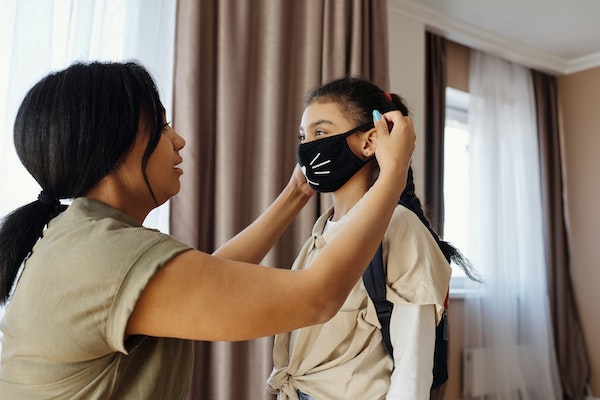 If there’s one thing that 2020 has taught us, it’s that it’s better to be safe than sorry. Of course, not everyone sees things that way. We all have friends and family that, from our perspectives, have had a baffling reaction to events as serious as the coronavirus pandemic.
If there’s one thing that 2020 has taught us, it’s that it’s better to be safe than sorry. Of course, not everyone sees things that way. We all have friends and family that, from our perspectives, have had a baffling reaction to events as serious as the coronavirus pandemic.
We love our friends and family all the same, and it’s only right that we’re passionate about doing right by them. Here are a few ways you can encourage those you love to stay safe from disease.
1.) Give Them Protective Accessories to Wear
Perhaps the most straightforward way to tell family and friends that you care for their safety is to give them the gear they need to be safe. Practicing social distancing with face mask while also observing proper hand hygiene is the ideal way to go about in public these days, what with the COVID-19 pandemic wreaking havoc across the world.
If you have at-risk friends or family that are resistant to wearing protection because they find some protective solutions uncomfortable, consider giving them a cloth face mask and fabric hand protectors instead of a medical-grade respirator and a pair of rubber gloves. Such products are practical enough for daily use and protection, and they are also very discreet compared to protective gear made specifically for medical use. Moreover, choosing such consumer-grade products will also help conserve resources for medical practitioners who need medical-grade the most.
2.) Steer Them Away from Fake News
Misinformation is, perhaps, one of the biggest hurdles we have to face in any crisis. Help friends and family understand the importance of using credible sources such as the Centers for Disease Control as well as other recognized medical institutions and public health agencies for their information regarding health-related issues.
Avoid doing these corrections in public or over social media. Discuss things with them in person and in private so that they understand that you are trying to help them and not humiliate them.
3.) Use Stories to Make the Dangers More Relatable
There’s a reason politics is often called a “battle for hearts and minds.” If your friend or family member is not responding to verified data on a certain health issue, consider switching your approach. Numbers and statistics are not necessarily the best way to communicate with some people. Others may require an appeal to their emotions to better understand what you’re trying to tell them.
The stories behind the numbers can do much to impart a context and emotional resonance to the figures. This is especially true if the stories are relatable or hit close to home, as it may allow your loved one to put themselves in the situation.
4.) Always Be Nice!
Understandably, you might get passionate or even angry with family and friends who do dangerous or illogical things when it comes to their health. But even in these circumstances, it’s important to find it in yourself to stay nice, or at least, to not be angry or belligerent. After all, people will be far less inclined to listen to what you have to say if they dislike your delivery.
This is especially true if you want to maintain good relations with your family and friends. The thing you’re arguing over may very well be irrelevant in a few months, but some broken relationships may never be restored.
5.) Exercise Empathy
No matter how well you think you know them, always take the time to consider things from the perspective of your loved one. This is true regardless of whether you’re talking to an elderly family member, a sibling, a close colleague, or a child. We all experience the world in different ways, and this can contribute greatly to how we understand certain things — even health issues. By taking some time to see where they’re coming from, it becomes easier to find a way to educate and help them.
It can sometimes be very challenging to get friends and family to act in their own self-interest, even when their health is at stake. However, if we truly care about someone, encouraging them to take positive steps to protect themselves and the community is well worth doing.



